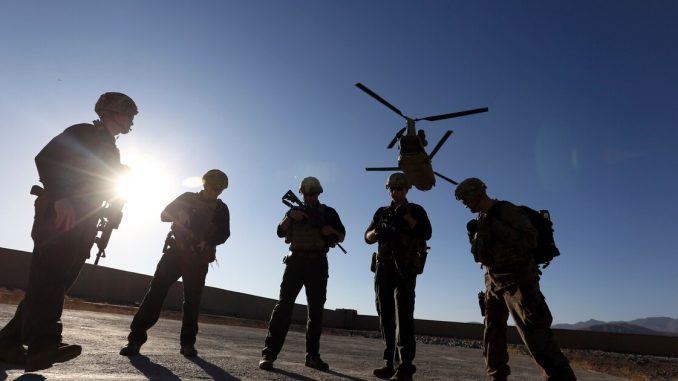
The Pentagon’s top civilian and top uniformed official spoke publicly for the first time Thursday about recent reports that Russia’s military intelligence agency had put bounties on U.S. troops fighting the Taliban in Afghanistan, and both said that those intelligence reports are uncorroborated.
Defense Secretary Mark Esper said that he had never been specifically briefed on the proposition of Russia offering bounties to Taliban fighters.
“It is the opinion of a number of intelligence entities, agencies, that could not corroborate the report,” he told the House Armed Services Committee.
Both Esper and Army Gen. Mark Milley, the Joint Chiefs chairman, answered multiple questions about the report, first published in late June by The New York Times, which stated that U.S. intelligence officials had briefed President Trump about the bounties in March, but that the administration had taken no action against Russia.
The White House has denied that the president was briefed on the program, and has since launched an investigation into who might have leaked information about such a briefing to the press. Esper testified that he has initiated a similar DoD-wide investigation.
/cloudfront-us-east-1.images.arcpublishing.com/mco/IQ242ULVHVGRLLA3P2NMO2HI7E.jpg)
For his part, Milley said that while the Defense Department has been aware of Russian cooperation with the Taliban, his office has not been working on the assumption that the bounties are real.
“There’s a big distinction between arming and directing. We don’t have ― in the case of the Russians ― we do not have concrete, corroborating evidence, intelligence, to show directing,” he said. “And that’s a big difference. And if we did, it would be a different response. We’re not done looking. We’re going to get to the bottom of this bounty thing.”
/cloudfront-us-east-1.images.arcpublishing.com/mco/4FN7ACZY6ZEILNUIB6HLYFJBN4.jpg)
Both Esper and Milley stressed that U.S. Central Command is aware of threats to U.S. troops operating in Afghanistan and is operating at the highest levels of force protection, but had not made any specific changes following a February intelligence report on potential bounties.
“I found it very worrisome,” Marine Gen. Frank McKenzie, CENTCOM’s boss, told reporters Wednesday, according to the Associated Press. “I didn’t find that there was a causative link [to troop deaths] there.”
Still, he added, the organization is cognizant of Russia’s influence in Afghanistan.
“We should always remember, the Russians are not our friends,” McKenzie said. “They are not our friends in Afghanistan. And they do not wish us well, and we just need to remember that at all times when we evaluate that intelligence.”


Be the first to comment